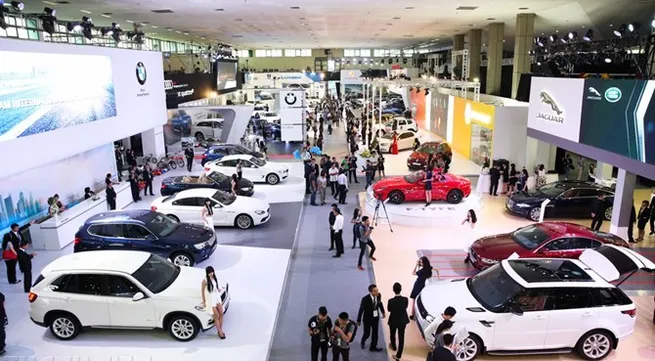Car importers cry foul over 'confusing' luxury tax rules in Vietnam

Importers and distributors of luxury car brands like Lamborghini and Rolls-Royce in Vietnam have written to the government, saying its proposed luxury tax provisions are confusing and troubling their business.
They expressed "deep concern" in the letter sent last week that luxury tax on imported cars would be regulated by two different new laws.
In October the government issued a decree stating the tax would be charged on importers' selling price, starting January 1. Currently the luxury tax is calculated on a car’s cost, insurance and freight (CIF) price, before duties and markups are added.
To prevent importers from undereporting values of imported cars to evade the luxury tax, the decree requires the selling price to be at least 5 percent higher than the CIF price plus import duties.
However, in proposed amendments to tax laws, the Ministry of Finance wants the tax to be applied on the final retail price, Nguyen Dang Thao, CEO of Euro Auto, told news website Saigon Times Online. The company is BMW's authorized distributor in Vietnam.
The October's decree would possibly increase prices of imported cars by 10 percent, and 20 percent that if the amendments are passed by the National Assembly later this month, he said.
Thao said the new rules, if applied, would cause huge losses to the company since many of its orders are expected to be shipped after the effective date.
Luxury tax rates on cars now range between 15 and 60 percent depending on the number of seats and the engine size.
With tax policies being frequently amended, it is very difficult for businesses to keep track of all the changes and tweak business plans accordingly, the letter said.
It also warned that the incessant changes to laws would give Vietnam's business environment a bad name and hurt the local auto industry.
They asked the government to delay the new rules for at least six months so that they have time to study them and make plans accordingly.
Vietnam imported 97,320 complete-built cars in the first 10 months, up 88.1 percent year-on-year, according to the latest figures released by Vietnam Customs.
The imports cost an estimated $2.33 billion, an increase of 101.8 percent.
Tags:





